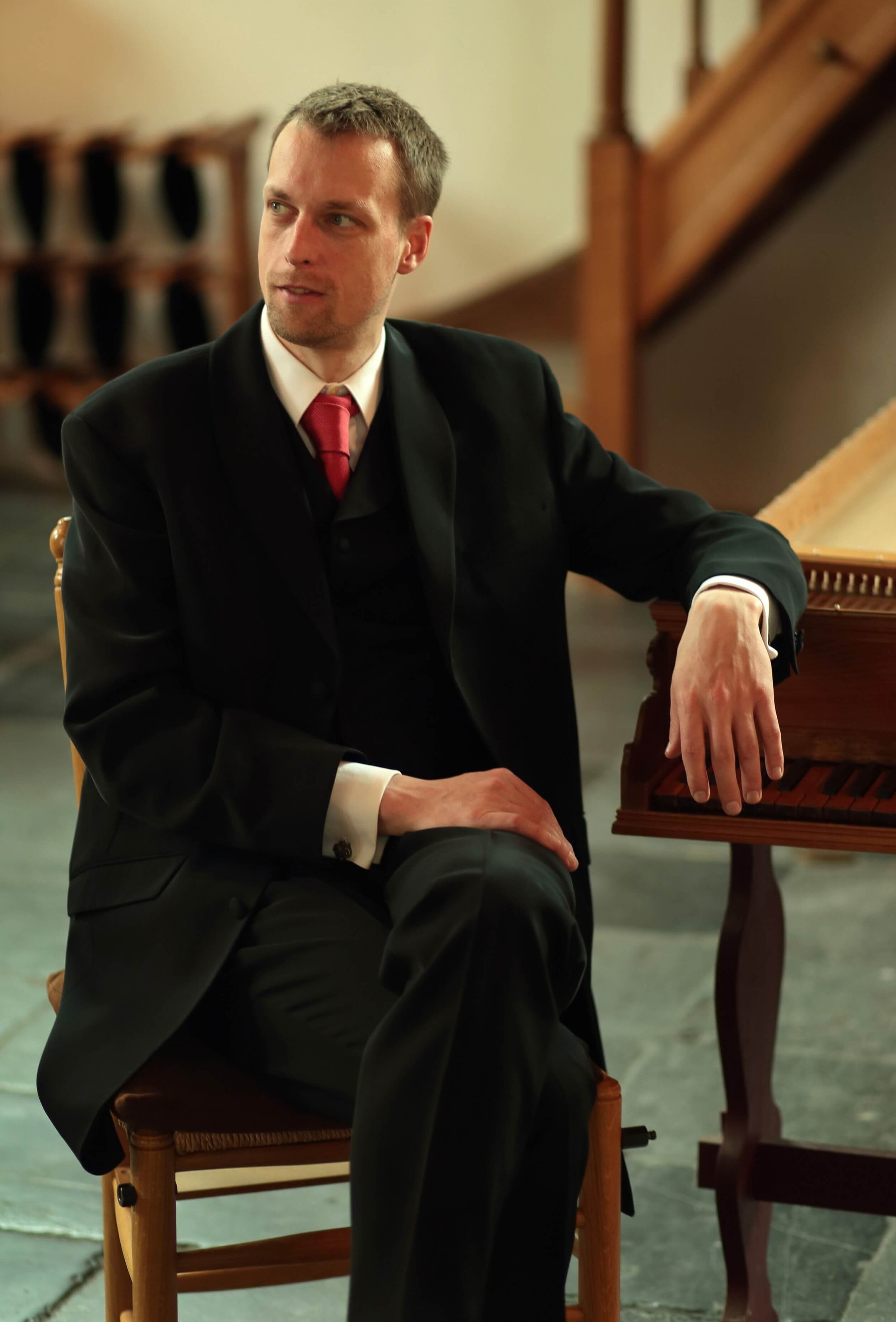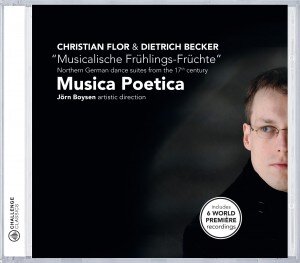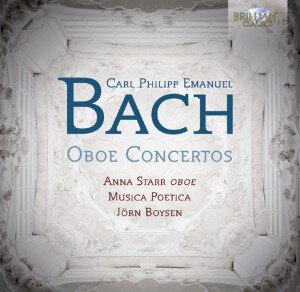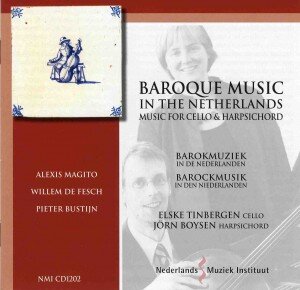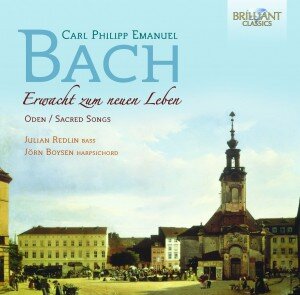Videos
Georg Muffat (1653-1704): Partita in C
Prélude - Allemande - Courante - Sarabande - Gigue
Jörn Boysen, harpsichord
Jörn Boysen: Allemande from a harpsichord suite in G major
Jörn Boysen, harpsichord
Jörn Boysen: Affettuoso (from a concerto for 2 violins & orchestra, mid 18th century German sensitive style)
Giovanni Battista Pergolesi (1710-1736): Aria: Tu me da me dividi barbaro (from L'Olimpiade)
Beatriz Lafont Murcia, soprano
MUSICA POETICA
W.A. Mozart: Allegro from Symphony in D KV 19
MUSICA POETICA, Jörn Boysen
Live at the The Hague Mozart Festival 2015
Michael Haydn: "Der Baßgeiger zu Wörgl" (MH 205)
Michal Bitan, João Luís Paixão
MUSICA POETICA
Jörn Boysen: Ouverture in F
MUSICA POETICA
Georg Philipp Telemann: Ouverture in G "La Bizarre", TWV 55:G (live)
MUSICA POETICA
Radio and TV
A documentary about the Moscow premiere of the Bach Boysen St Mark Passion in Zaryadye concerthall in April 2019
Zondnews (18 April 2019)
Click on the image to listen to Part I
Bach – Boysen: St Mark Passion - I
Benjamin Glaubitz, Evangelista
Julian Redlin, Jesus
Cantus Thuringia
MUSICA POETICA
(Live recording, Concertzender, 3 March 2016)
Jörn Boysen performs excerpts from 2e Suite pour le clavecin by Pieter Bustijn (VPRO Vrije Geluiden, Amsterdam, 6 May 2012)
A documentary about the completion of Bach’s St Mark Passion by J.Boysen and its Minsk perfomance in April 2019
Kamerton, Belarus 3 (26 May 2019)
Click on the image to listen to Part II
Bach – Boysen: St Mark Passion - II
Benjamin Glaubitz, Evangelista
Julian Redlin, Jesus
Cantus Thuringia
MUSICA POETICA
(Live recording, Concertzender, 3 March 2016)
Reviews
De Venise à Londres – Itinéraire Baroque (2017)
[…] And so, on to the next discovery. This time, it was the counter-tenor Maarten Engeltjes, who (rightly) received the only standing ovation of the festival. Right up there, on this occasion, with the likes of Philippe Jaroussky and Iestyn Davies (in his generation), Engeltjes has all of their expressive capabilities, their strength and, arguably, even more of a stage presence (certainly I would put him above Iestyn Davies in this regard).
After a perfectly lovely account from Musica Poetica of Johann Caspar Ferdinand Fischer’s D minor Suite, culminating in a splendid “Passacaille,” the standard skyrocketed with Engeltjes’ arrival for “Scherza infida” from Ariodante. It takes a lot to beat Alice Coote’s version at the Barbican (English Concert/Bickett) but Engeltjes’ silken legato, superb diction, expressive decoration and the fact he was completely and utterly living the music was in just another league. We needed the clean lines and happiness of Musica Poetica’s version of Handel’s Op.6/1 Concerto grosso to recover, quite frankly, before Engeltjes returned for more Handel, a similarly stunning account of the energetic “Venti Turbini” from Rinaldo. The vocal virtuosity was second to none, and all credit to Boysen and Musica Poertica for the ensemble work, particularly the doubled semiquaver passages on the bassoon.
Again, it was left to another composer to ground us: this time literally almost with a Chaconne (ah, if only he had called it a “Ground”) by Lully.
Telemann’s Sinfonia spirituosa in D is well worth acquaintance. It contains simply gorgeous slow music before a furioso finale. But it was Vivaldi’s remarkable Nisi Dominus, RV 608 that provided the real ear-opener. In the accompanying interview, Ton Koopman speaks of Vivaldi’s vocal works now coming into focus after decades of rule by the Gloria. The softly pulsing opening music of the Nisi Dominus holds infinite emotion. Whether in spectacular semiquavers or lines that seemed never to end, Engeltjes convinced us that this was the greatest piece we had ever heard. Vivaldi’s use of harmony is noteworthy in this piece, more sophisticated than this composer is usually given credit for.
An encore was inevitable: Handel’s “Ombra mai fù” (Serse), as tender as it has ever been heard. A star is born.
You can find other performances of Engeltjes in these two Handel arias on YouTube here and here as an indication, and also an Ombra mai fù; however, bear in mind they pale in comparison to the magic of the Itinéraire Baroque performances.
The evening concert in Cercles was a musical journey From Venice to London during the 17th and 18th centuries given by the Netherlands-based Musica Poetica (there is a London-based group with the same name), directed from the harpsichord by Jörn Boysen. After the opening Suite in D minor by JCF Fischer, with its distinctly French Ouverture and stately concluding Passacaille, came two operatic arias and a Concerto Grosso (in G,Op. 6/1) by Handel. Both arias featured distinctive writing for the bassoon, here beautifully played by the very impressive Kim Stockx. In the emotionally wrought aria Scherza infida (from Ariodante), the bassoon starts with a few continuo flourishes, but the key moments come with long-held notes lurking beneath the gently muted strings – a tiny touch of musical magic that brings tears to my eyes, and so typifies Handel’s musical genius. In Venti Turbini (from Rinaldo) the bassoon takes over the virtuoso continuo bass role entirely, frequently playing in duet with the principal violin or vocal soloist. Equally impressive were the two main violinists, John Ma and Judith Verono Martin. The vocal soloist was countertenor Maarten Engeltjes, an exceptionally talented singer, who caught the different moods of the two arias brilliantly as well as giving us proper Baroque trills (rare amongst singers, who so often rely on vibrato) and well-judged cadenzas.. You can hear him singing Scherza infida here, albeit with a different orchestra. He also excelled in the concluding Nisi Dominus by Vivaldi (RV 608). An inspiring concert.
[…] l’ensemble Musica Poetica bénéficie de la direction passionnante et imprévisible de Jörn Boysen: la construction des crescendos, tout autant que les nuances contrastées avec des accents marqués, révèlent un chef inspiré et excellent accompagnateur par ailleurs. L’Allemand dirige du clavecin sans jamais prendre le pouvoir comme la veille avec Ton Koopman, bénéficiant d’un atout non négligeable en la personne de l’alto Maarten Engeltjes, véritable rayon de soleil dans ses deux airs dévolus à Haendel. Habitué des lieux, le Néerlandais fait l’étalage d’un timbre pur, à l’émission harmonieuse, au bénéfice d’un don réel pour l’expressivité. Les quelques limites rencontrées dans la puissance devraient l’orienter vers des rôles non virtuoses, afin de lui permettre de conserver ses qualités, vivement applaudies à l’issue du concert. En bis, la célèbre aria de Xerxès «Ombra mai fu» achève de convaincre le public debout, manifestement ravi de la soirée.
Articles
COMMUNICATING THROUGH MUSIC – A BAROQUE COMPOSER SPEAKS
Journal of Musical Science Magazine (page 76)


















